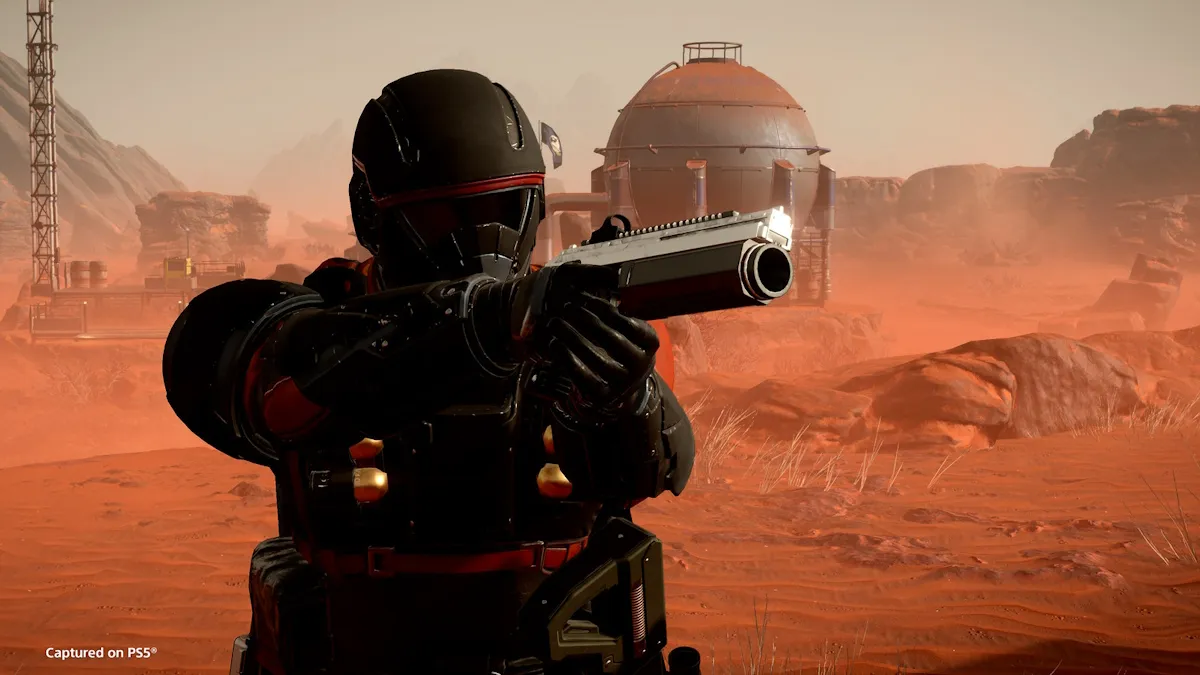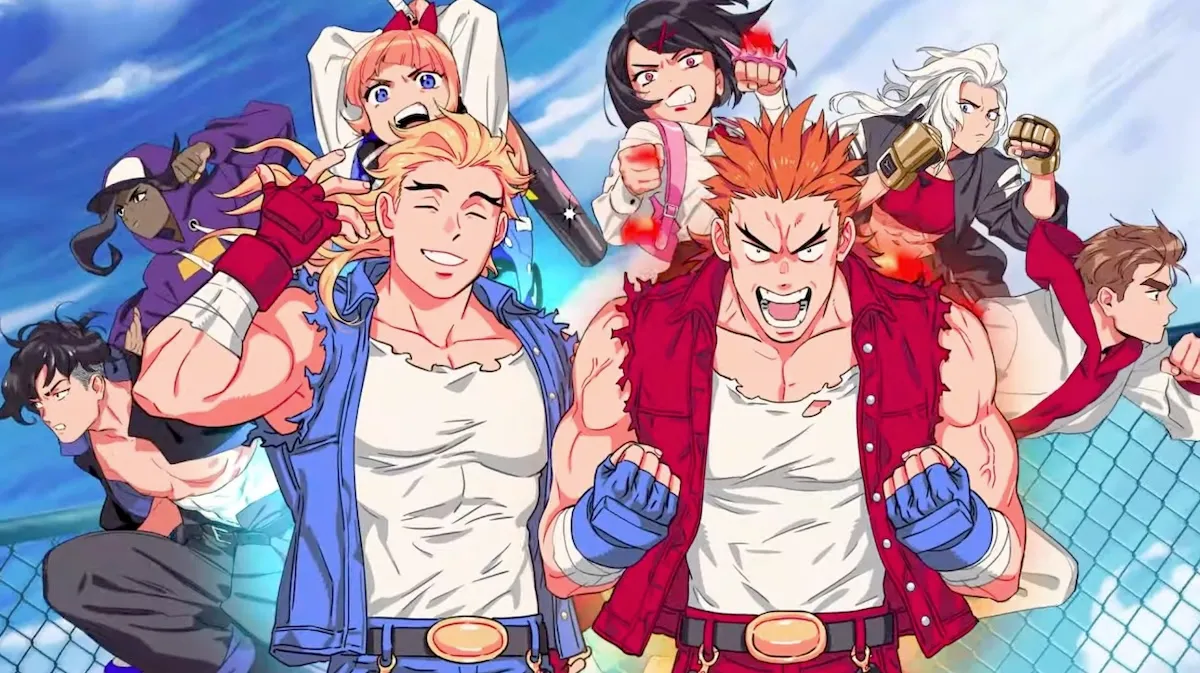[Editor’s Note: We’re not just a (rad) news site — we also publish opinions/editorials from our community & employees like this one, though be aware it may not jive with the opinions of Destructoid as a whole, or how our moms raised us. Want to post your own article in response? Publish it now on our community blogs.]
It’s pretty staggering to think of just how little time we’ve been experiencing voice acting in games. Sure, we’ve had stories told to us through text, characters who lived only as sprites and text boxes, perhaps clawing toward the surface through a low quality sound chip with a dying grunt. Even Final Fantasy did not receive recorded vocal work until its tenth installment, and calling it acting in many cases is extremely dubious. Scenes like this are famous for representing everything that’s wrong with vocal work.
But where is the blame placed when it comes to a scene like this, and to whom should praise be levied for a game like Uncharted 2, which stands as a rousing success of vocal work? It’s easy to suggest that poor vocal work in games is the fault of the actors themselves, and it’s similarly common to hear people say that the material given to voice actors is shitty in such a profound way that James Lipton himself couldn’t deliver the lines to our satisfaction.
But the reality is that a complete paradigm shift is needed in the approach to dialogue, reconstructing it from the ground up. In fact, the very future of high-quality narrative games rests on the shoulders of each spoken line, and it might surprise you to see just how distant the future seems.

Speech in the earliest games was, of course, represented by text. In fact, you’ll remember that the first computer adventure games were entirely made of up text. 1976 saw the first computer adventure game in
Colossal Cave Adventure, which was, by design, a very solitary experience. Navigating caves was the main objective, and, really, the only dialogue took place between the player and the game’s programming. The player would submit a request, and the game would respond to it. Hell, when you think about it that way, the entire game was a dialogue, and one that engaged the player a whole lot more than a lot of modern audio dialogue does. But interaction between characters would come later.
But as games moved into new territories, text was largely dropped. Game makers struggled to create visuals and gameplay with extremely limited technology, cobbling together the simplest of games that were nevertheless impressive for what they were. But characters, text, and dialogue were, for the most part, nowhere to be found.
We all know the progression. Graphics get better, budgets get larger, and soon we have Patrick Stewart in our videogames. Game stories attempt to rival movies, and in some cases they find some degree of success. Voice acting becomes an art, and we start to see people like Nolan North and Jennifer Hale become well-known simply for providing vocal performances in tons of games. It would seem that, today, all is well in the world of game audio.
But it isn’t. Games still receive some incredibly poor vocal work despite all of the talent that is out there. Eat Lead: The Return of Matt Hazard somehow managed to take Will Arnett and Neil Patrick Harris and create a game that is mediocre on all levels, even those related to vocal work. How they made Will Arnett boring is a mystery to me, but they did, and it came as a surprise to a lot of people.
So, in a case like this, what is the problem? Some simple answers exist, and they may have some truth to them. Perhaps Will Arnett didn’t give a shit about the project, and phoned his performances in. Perhaps the writing was so bad (which it was) that the performances would be poor no matter who gave them.

But I don’t think this is the whole story. I think this cancer has taken hold deep in game design, using tradition as a fuel to keep itself resistant to all attempts to eradicate it. Its hold is so strong that it even has spread to games that are pretty good.
Dragon Age: Origins is not a game with poor voice acting. You don’t listen to a character speaking and say “I could have done this better.” Voices seem to be carefully chosen, and lines are delivered confidently. It’s hard to criticize the actual writing of the dialogue, either. If we consult Kurt Vonnegut’s rule that “Every sentence must do one of two things: reveal character or advance the action,” then the majority of the lines written in the game check out.
So why did the game’s dialogue, which seemed to be a selling point of the game, fail so utterly in my eyes?
I found myself bored during nearly all conversations that didn’t involve Shale or shoes, and the latter was interesting only due to a sense of novelty, as my male character, who just happened to greatly resemble Lemmy, stood by as a ten-minute conversation played out that was all about shoes. Bro seemed to enjoy it, too.
Now that I’ve had plenty of time to explore what made the game’s dialogue so boring for me, I’ve traced it back to a lingering problem in games that seems to go back many, many years: dialogues are treated like monologues. Characters speak to fill the air in a Shakespearean tradition that the writing itself can’t hope to stand up to. A character who stands in one place and simply talks is the general tactic used by the game to deliver spoken lines. And oddly enough, those random conversations that take place as your party walks were some of the only ones that held my interest. Shame that the simplest action often interrupted them.

Anyway, it’s easy to see similar problems in other games. Fallout 3 suffered from it as well to some extent, though a lesser one. The main difference in this case is that monologues simply seemed to be shorter. But still, people rambled on as if in a vacuum, speaking to some distant ear floating out in space, hoping that their words were being heard. If not, oh well, the show must go on.
It seems built into the very fabric of many games that interaction should have no part in dialogue. Speakers seem utterly disconnected, speaking to one other but never truly seeming to converse.
I say that it’s built into games because it’s not actually the dialogue’s fault. Monologues aren’t put in because the developers just love the shit out of them, but because they’re the only types of conversation that could work on these situations. One major contributor to this is the silent protagonist, as seen in both Dragon Age: Origins and Fallout 3. While the player is given conversational options, the actual player character never speaks outside of combat.
Imagine if the player were tasked with selecting a dialogue option for every line in a typical ten-minute conversation in the real world. Every um, what, and holy shit would require a press of a button and a decision by the player as to just how he or she wanted to express “holy shit.” It would be absolutely god-awful, both from a gameplay and a storytelling perspective, and that’s why books and films typically don’t represent conversation exactly as real humans engage in it.
But a game like Dragon Age: Origins requires an approach that is so far from how actual humans interact that it makes the experience a lot less enjoyable. Even Mass Effect, which takes an approach quite similar to that of Dragon Age: Origins, had dialogue that held my interest far better. Maybe it was a matter of having a voiced protagonist; I can’t say for sure.
But the feeling was certainly made far worse by the fact that I completed Uncharted 2 directly before starting Dragon Age: Origins.
The gulf between the two games could not be greater. Uncharted 2 is, for all intents and purposes, one of the most advanced games ever created, and it’s easy to see this advancement in the game’s dialogue. But it’s not an advancement of dialogue writing, as when considered on a line-by-line basis, there’s nothing particularly remarkable about what the characters are saying.
Instead, the dialogue in Uncharted 2 simply feels different, as if it had come from an alternate dimension of voice acting where natural delivery and interaction were the norm. Characters appear to live and breathe on the screen, and more than any videogame before it, they interact, reacting to one another just not visually, but also vocally.

According to Amy Henning, Creative Director for Uncharted 2, the process makes all the difference. “Our process is really different from anything that’s done in any other videogame,” she explains. Indeed, even Nolan North, who has done voice acting for basically every game made recently, praised the approach of Uncharted 2 for what it does differently. “We all prepare the same way we prepare for an episode of a television show or a feature film shoot,” North said.
So, what’s so different about this approach? For one, characters aren’t forced into pre-scripted lines. Sure, there are lines written on a piece of paper, and the actors have to deliver them, often without any time to prepare at all. But the actors did a lot of reacting to the game itself, using two techniques: ADR and chasing.
ADR isn’t all that uncommon. In essence, it involves replacing dialogue after a scene has otherwise been completed. This can be done for a variety of reasons: it can allow a voice actor to fix a performance that is either bad or needs to be changed in reaction to a change elsewhere in the game, and it can also be used to help the writing, perhaps if a writer, director, or even a voice actor were to decide that a line, as written, could be improved.
Similarly, chasing allows actors to provide additional levels of voice that could be used in the game as needed. Chasing is defined as the creation of vocal tracks that occurs in real time while the actors watch the gameplay; basically, a scene in the game plays out, and the actors simply deliver whatever lines they can think of on the spot. This is normally as simple as grunts as a character jumps, but the actors in Uncharted 2 were allowed to go beyond this, acting out full scenes in the booth for the director to pick apart.
Indeed, much more was left up to the actors in Uncharted 2 than in most videogames. They were treated as actors rather than factories of vocalizations, with pre-scripted routines that, if strayed from, would mean that the machines were broken. It is these moments in which Uncharted 2’s voice actors go off-script that make the game stand out for its voice performances.
Sounds kind of fun, doesn’t it? Nolan North agrees. “It’s just so much fun,” he said in reference to the game’s use of ADR and chasing. And you know what? It’s extremely apparent to players of Uncharted 2. You can’t help but have fun even as you listen to the vocal performances of these actors.
But the use of vocal directing techniques does not alone make good performances, and the game’s director, Gordon Hunt, knows this. “We were looking for people with chemistry,” Hunt said about the casting process. They looked for actors with a theater backgrounds. They required a comprehensive auditioning process. And they even required the actors to work for about a full year on the game.
All of this work paid off, though, as there’s an undeniable chemistry present on-screen, not just between characters like Drake and Elena, but even between Drake and Sully. Really, all of the characters seem to work quite well together, and this can be attributed to the chemistry between the actors who play them. You simply can’t write chemistry; anyone who works in film or television will tell you that. So why would it be any different in games?
It isn’t, and that’s why so many game relationships fail. Did Tidus and Yuna have any chemistry? Compared to Drake and Chloe, no. Even someone like Morrigan in Dragon Age: Origins, who has a strong, alluring personality, cannot single-handedly infuse that game with any true sense of character chemistry because it’s never reciprocated. Blame it on the silent protagonist, voice acting style, whatever. The funny part? Chloe and Morrigan have the same voice actress: Claudia Black.
Again, I don’t mean to suggest that her performance (or any vocal performances in Dragon Age: Origins) was poor. They were quite good. But there’s something strikingly different about the overall feel of the voice acting in these two games, even right down to the two characters played by Claudia Black. Sure, they’re incredibly different games thematically, with disparate tones. But even dark films have chemistry, and a game like Dragon Age: Origins should have it as well.

But chemistry isn’t the only element of voice acting involved here. A game’s humor greatly benefits from such an approach to voice acting. As suggested by Amy Henning, situational humor works far better in games than jokes. One of the most famous moments from the original Uncharted came when Drake says “I’m going to kick you to sleep.” This was not a joke written into the game – it was something that Nolan North just said because he thought it fit a particular situation. It’s a similar story with the “There’s a guy below you,” moment from Uncharted 2. This isn’t a joke devoid of context like those seen in Eat Lead: The Return of Matt Hazard (which felt like a joke that came with a free game, except that both of them sucked); it’s a moment written to match the situation, and without the chemistry between the actors, it would fail.
It might be surprising to hear that very, very few games place two voice actors into the same room at once. It’s surely a matter of scheduling and budget restrictions, but justifications like these don’t make the fact any less true. How is chemistry and humor between characters supposed to come out if the people who make them come to life never even meet face-to-face? Well, it doesn’t, at least not very often.
So, then, what are we destined for in the future? Who knows. I’d be remiss if I weren’t to concede that the approach to vocal performances seen in Uncharted 2 is time-consuming, expensive, and, for most games, unrealistic. Not every game can have a massive budget to afford a talented director, voice actors, and a freaking year devoted to the actors. Does that mean that dialogue on the level of Uncharted 2 is destined for nothing more than to become that pie in the sky: delicious, always in sight, but always out of reach?
We all think to the future because of what we want to happen. We dream that things could be better (and, honestly, coming out of 2009, which was likely a shitty year for a lot of people, many of us have a lot more to dream about than videogames).
So even if the spread of quality dialogue and character interaction isn’t something that we achieve in the next month, or even year, Uncharted 2 shows us that it’s time to start demanding better. Even if it begins with the little things, like letting voice actors get together in the studio and build up some chemistry, we will start to see profound changes. Character interaction, character development, and even plot development will improve. We’ll have characters and scenes that stick with us.
In the realm of narrative, character-driven games, these are some demands that we absolutely need to make.




